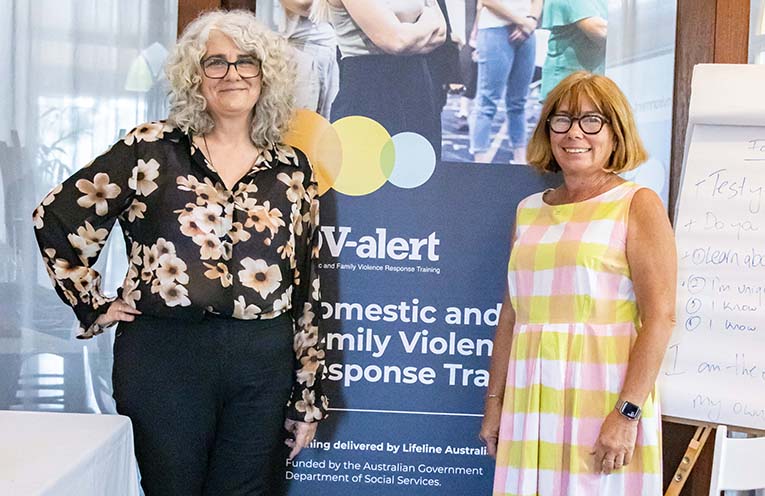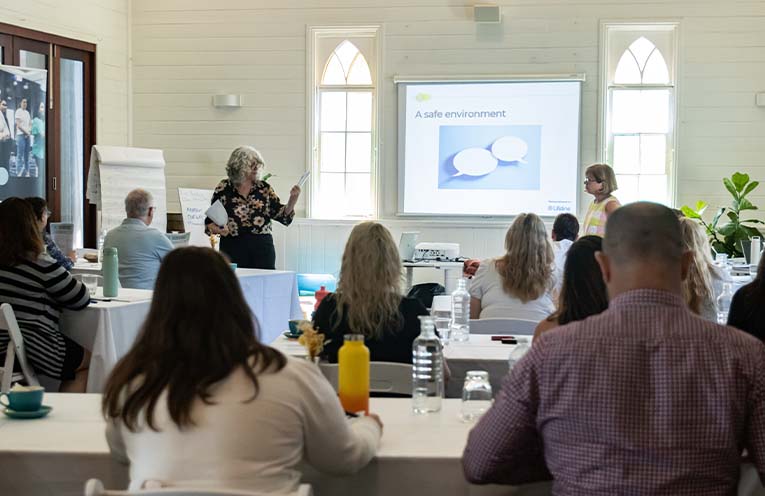
LIFELINE’S DV-Alert program was in action over two days in Bellingen, focusing on the prevention, early intervention and response to domestic and family violence (DFV).
The program is funded through the National Plan to End Violence against Women and Children.
 Advertise with News of The Area today.
Advertise with News of The Area today.It’s worth it for your business.
Message us.
Phone us – (02) 4981 8882.
Email us – media@newsofthearea.com.au
Lifeline Australia has been delivering DV-Alert training since 2007, enabling frontline workers and community members to understand the complexities of DFV.
“One in three women have experienced physical violence since the age of fifteen, one in five has experienced sexual violence, on average a woman is killed by their intimate partner every ten days, and it’s mostly males who are the perpetrators,” Tegan McVey, Training and Administration Co-ordinator at Lifeline North Coast told NOTA.
“It costs us $26 billion dollars a year and it’s something that could be prevented.”
The workshop facilitators, Liz Yazbek and Ellen McNulty, explained the often complex nature of DFV, highlighting that signs of abuse are not always easy to recognise.
The workshop also covered coercive control.
From July 2024, coercive control will be a criminal offence in NSW, described as when a person uses abusive behaviours towards a current or former intimate partner with the intention to coerce or control them.
“Lifeline has financial counsellors who would probably see that, yet the public don’t,” said Tegan.
“It’s either power and control in holding the finance over the woman or using it in other harmful tactics as in gambling as well.”
As a first priority, workshop participants were encouraged to always listen to the person in need.
“Then you can see what’s safe for them because they are the experts in what is safe,” said Tegan.
“Sometimes calling the police can escalate matters.
“Just believing the person if they disclose validates their experience.”
Phoning Lifeline or 1800 RESPECT call also be a stepping stone to help.
“RESPECT do an intake basis and work with that person on a case and transfer to a counsellor and work out the best way to help them,” said Tegan.
“The biggest reason for them going back is if there is no support network – no family, friends, no people to go and talk with, who they can stay with and be safe with.”
In the next financial year, more workshops are coming to the Nambucca and Bellingen Shires.
By Mary KEILY
